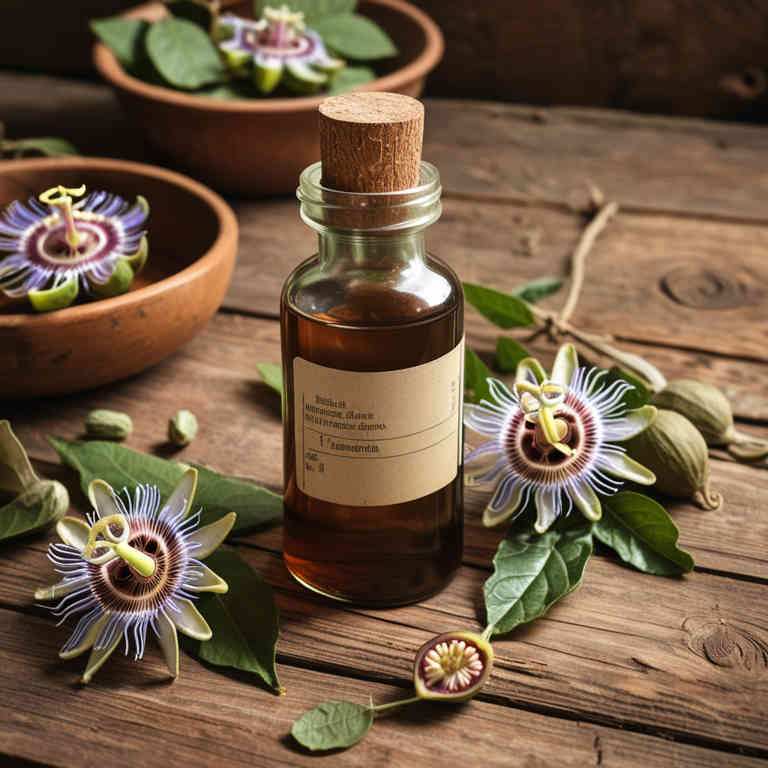Passiflora incarnata tincture for medicinal use

Passiflora incarnata tincture is a herbal preparation made from the dried flowers of the passionflower plant.
It is commonly used in herbalism for its calming and sedative properties. This tincture is often employed to help alleviate anxiety, insomnia, and restlessness. It works by promoting relaxation and supporting a sense of tranquility.
The preparation is typically taken in small doses, either directly or diluted in water, to harness its soothing effects.
Uses
Passiflora incarnata tincture has been used to promote relaxation and ease anxiety for centuries, with roots in Native American traditions where it was valued for its calming properties.
Historically, it was used to treat insomnia, nervousness, and restlessness, often prepared as a tea or tincture. In traditional herbal medicine, it was also employed to alleviate symptoms of hysteria and to support emotional balance. Modern applications include its use as a natural remedy for stress-related conditions, sleep disorders, and mild anxiety, often in complementary medicine practices.
Today, it is widely available as a herbal supplement and is studied for its potential sedative and anxiolytic effects.
Benefits
Passiflora incarnata tincture has health benefits such as promoting relaxation, reducing anxiety, and improving sleep quality.
It is commonly used as a natural remedy for stress-related disorders due to its calming effects on the nervous system. The tincture contains compounds like flavonoids and alkaloids that may contribute to its sedative and anxiolytic properties. It is often recommended for individuals seeking non-pharmacological ways to manage insomnia and emotional distress.
However, it should be used under the guidance of a healthcare professional to ensure safety and proper dosage.
Constituents
Passiflora incarnata tincture active constituents include compounds such as flavonoids, alkaloids, and essential oils.
These components are believed to contribute to its calming and sedative effects. Flavonoids like chrysin and hesperidin may support mood regulation and reduce anxiety. Alkaloids such as harmine and harmaline are thought to influence neurotransmitter activity in the brain.
Essential oils in the tincture may also aid in promoting relaxation and improving sleep quality.
Preparation
To make Passiflora incarnata tincture, begin by harvesting the ripe berries of the passionflower plant and washing them thoroughly.
Next, place the berries in a clean glass jar and cover them completely with high-proof alcohol, such as vodka or grain alcohol. Seal the jar and store it in a dark, cool place for four to six weeks, shaking it occasionally to ensure even extraction. After the steeping period, strain the liquid through a fine mesh strainer or cheesecloth to remove the plant material.
Finally, transfer the tincture to dark glass bottles and store it in a cool, dark place for future use.
Side Effects
Passiflora incarnata tincture may lead to mild drowsiness, sedation, and relaxation due to its sedative properties.
It is commonly used to alleviate anxiety and promote sleep. However, possible side effects include dizziness, gastrointestinal discomfort, and in some cases, increased drowsiness or impaired coordination. Individuals with certain medical conditions, such as respiratory issues or depression, should use it with caution.
It is important to consult a healthcare professional before using this preparation, especially if taking other medications.